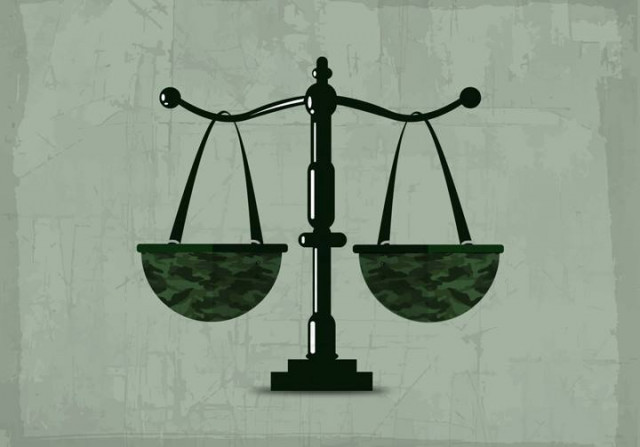A delicate balance
We support finding of the Supreme Court despite profound reservations that exist regarding military courts generally

Military courts, whatever their merits and demerits, are legal under the Constitution and the Supreme Court has now recognised that. CREATIVE: AAMIR KHAN

On August 5, the Supreme Court dismissed a raft of petitions against the 21st Amendment in a decisive 11-6 ruling. We support the finding of the Supreme Court despite the profound reservations that exist regarding military courts generally. They may be the thin end of a powerful wedge, but as things stand, they are a constitutional reality and the Supreme Court is right to recognise that. There are other battles to be had about the Constitution as a legal entity, and whether or not amendments to it can be struck down and the legality, or otherwise, of amendments made to the Constitution by parliament — but the ruling is a recognition of the primacy of parliament as the lawmaker, however contentious.
All too often, there has been a lack of respect for parliament and its decisions — though some are undoubtedly flawed and reflect an institutional immaturity — but Pakistani democracy has to be viewed very much as a work in progress rather than a finished item, perfect in every way. The military courts have been set up to address a specific issue at a particular point in time. A time when the state is fighting a complex battle between itself and forces that seek not just to destabilise, but to overthrow, to de-democratise and return to a form of governance that is anachronous to the modern and developing world. We give our (very) guarded approval.
Published in The Express Tribune, August 6th, 2015.
Like Opinion & Editorial on Facebook, follow @ETOpEd on Twitter to receive all updates on all our daily pieces.














COMMENTS
Comments are moderated and generally will be posted if they are on-topic and not abusive.
For more information, please see our Comments FAQ